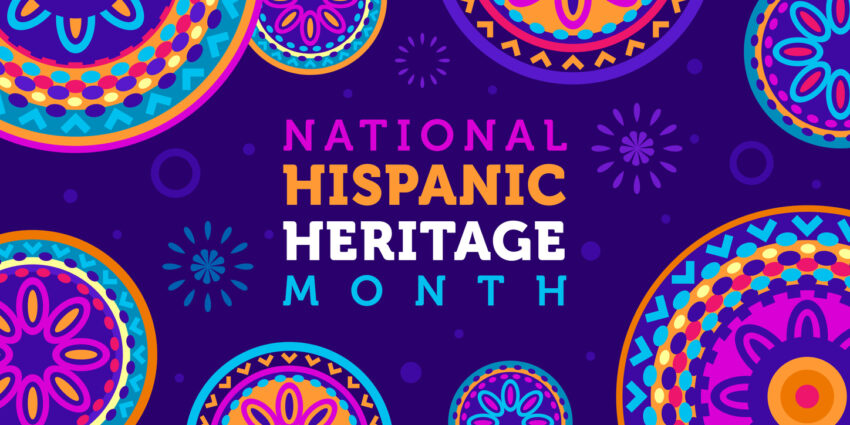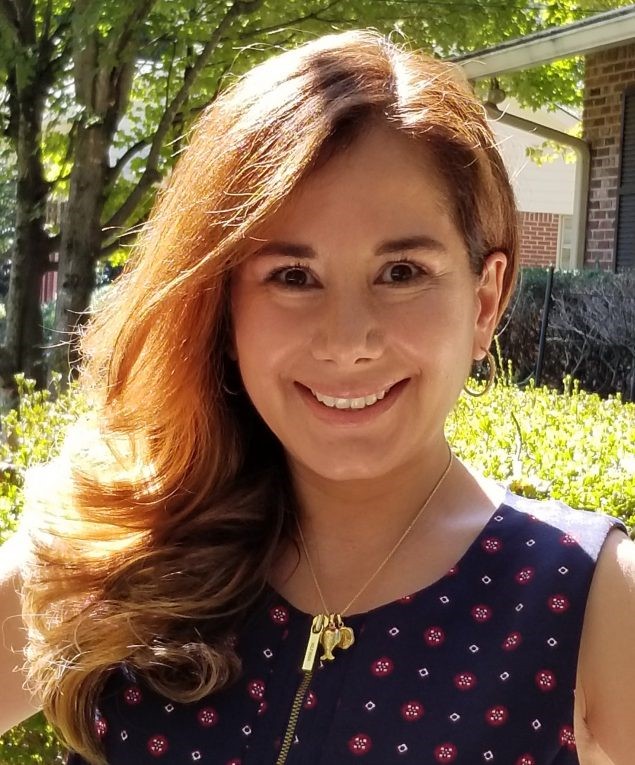
Share On Social!
By Dr. Fátima Coronado
CDC, Salud America! Guest Blogger
Hispanic Heritage Month (Sept. 15-Oct. 15) is a time to recognize and honor the Hispanic and Latino community’s achievements, culture, and contributions to the nation’s history.
It’s an occasion to highlight the positive influence of Hispanics and Latinos throughout the country’s history. This year we take the opportunity to recognize that our country is stronger, healthier, and safer when we recognize our shared humanity and value every individual and community: Todos Somos, Somos Uno: We Are All, We Are One.
As the US population becomes more diverse, Hispanic Heritage Month offers a valuable opportunity to foster cross-cultural understanding and appreciation, break down stereotypes, and promote inclusivity.

As a Hispanic person in the United States, I realize that the celebration not only brings people together for gatherings—promoting unity and solidarity and reinforcing our shared heritage and common experiences—but also serves as a reminder of the challenges and inequalities faced by Hispanic communities.
Uneven access to education, healthcare, and equal opportunities significantly affects the well-being and health of Hispanic people, as well as other minority populations. For instance, in 2022, only 88% of Hispanic young adults had completed high school, compared to 97% of non-Hispanic White young adults. Lower education levels can limit job opportunities, leading to lower incomes, which often means reduced access to quality healthcare and the chance to start managing chronic conditions early. The result is often poorer health outcomes.
Hispanic adults living in the United States are also more likely to have type 2 diabetes compared to non-Hispanic White adults and are less likely to be aware of their cardiovascular disease (CVD)-related risks, like high blood pressure, compared to their non-Hispanic White and non-Hispanic Black counterparts. Even when diagnosed with high blood pressure, Hispanic adults are less likely to be on treatment or manage their condition.
Addressing the burden of chronic conditions in Hispanic communities is an opportunity to drive prosperity, power, and progress for the entire country.
A healthier population is more productive, leading to economic growth and better well-being for everyone, not just Hispanic communities. Ultimately, our ability to thrive and shape a better future for our children depends on our commitment to protecting and promoting the health of all Americans.
Addressing disparities in the burden of chronic conditions and social determinants of health requires strategic partnerships between government and community-based organizations and underused collaborations. These collaborations can lead to early detection and management of chronic conditions by raising awareness about healthy lifestyle choices and the importance of preventive care. They can also facilitate policy, systems and environmental changes to ensure access to culturally sensitive and easily accessible health care for Hispanic communities. Further, promoting education, improving transportation options, creating equal job opportunities, and actively involving Hispanic communities in designing health programs can go a long way in advancing health equity.
The significance of Hispanic Heritage Month extends far beyond the confines of a single month; embracing and celebrating Hispanic heritage should be a year-round endeavor.
Likewise, prioritizing the health of every person in the United States is essential to guarantee we can all enjoy the progress and prosperity we have achieved and pass them on to future generations. The Hispanic population has made lasting contributions to the country and will continue to do so.
Let us ensure Hispanic heritage remains an integral part of our collective identity by engaging partners and advancing strategies to prevent disparities in chronic conditions and promote healthier Hispanic communities.
Dr. Coronado is the Associate Director for Science at the Division for Heart Disease and Stroke Prevention at the CDC. Before joining DHDSP, she served as the Associate Director for Science at the Division of Scientific Education and Professional Development (DSEPD), in the Center for Surveillance, Epidemiology, and Laboratory Services. Dr. Coronado has played key roles in multiple CDC emergency responses, including COVID-19, Ebola 2019 in D.R. Congo, Zika in Brazil, Ebola in Guinea and Guinea Bissau, H1N1 in Latin America, Polio in Africa and Southeast Asia, 2003 SARS, etc. She previously served as Deputy Associate Director for Science in DSEPD, and medical officer in the Meningitis and Vaccine Preventable Disease Branch where she established surveillance systems for notifiable diseases in different African countries and served as an SME in H. influenzae and pertussis.
Her areas of expertise or research interest include cardiovascular disease epidemiology, evidence-based guidance development, global health, infectious disease prevention and control, and vaccine preventable diseases. She is an SME in governmental public health workforce development. Dr. Coronado has worked in dozens of countries on issues around infectious and vaccine preventable diseases, and conducted surveillance and prevention projects in Africa, Latin America, and Southeast Asia.
Explore More:
Healthcare AccessBy The Numbers
142
Percent
Expected rise in Latino cancer cases in coming years



